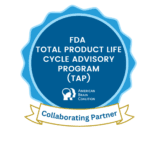
In speech-language pathology, the term resonance refers to nasality in speech. In other words, how nasal a person’s speech sounds. When someone is congested, they likely sound hyponasal, or not nasal enough. This is because the congestion is blocking sound from being resonated in the nasal cavity, or the nose. People can also sound hypernasal, meaning there is too much nasality in their speech. Hypernasality happens when too much sound is being resonated in the nasal cavity.
What is the nasal cavity and what does it have to do with speech? When we talk, we create sound waves from the vibration of our vocal folds that travel up our vocal tract. These vibrations are then modified in our mouth and nose. Speech-language pathologists call these areas of oral and nasal cavities.
For example, to say “Zzzz,” the sound waves from vocal fold vibration are then modified in the oral cavity by bringing the sides of the tongue up to the roof of the mouth. For the sound “Zzzz,” the nasal cavity is closed off with what is called the velum. The velum is a flap of muscle that opens and closes off the nasal cavity. When you breathe through your nose, your velum is open. When you say, “Zzzz,” your velum is closed. Some speech sounds are resonated in the nasal cavity, such as “M” and “N.” To produce these sounds, sound waves from vocal fold vibration are resonated in the nasal cavity instead of the oral cavity.
What commonly happens to resonance in ataxia?
In ataxia, speech can occasionally or frequently sound hypo- or hypernasal. Why does this occur? We think it is because of difficulty with correctly coordinating the velum to open and close at the right time while speaking. Speech occurs rapidly, so the timing of the opening and closing of the velum must be very precise. In ataxia, it is difficult to accurately coordinate movement. This means that the velum might be opened or closed at the wrong time, making speech sound too nasal or not nasal enough.
Another related issue that can happen in ataxia is nasal regurgitation while eating and drinking. Nasal regurgitation happens when food or liquid comes out of the nose while swallowing. This happens when the velum was not closed off effectively. In ataxia, this will happen when the timing of the closure of the velum is not correct, and the nasal cavity stays open while swallowing.
How can resonance be improved in ataxia?
Unfortunately, there is not very much research on how to improve the coordination of the velum in ataxia to improve resonance. It is possible that practicing correctly producing nasal versus non-nasal sounds (such as “M” vs. “Z”) with a speech-language pathologist could improve the coordination of the velum. To improve the closure of the velum while swallowing, a speech-language pathologist can work with patients to make the closure of the velum faster and stronger to avoid nasal regurgitation.
If you would like to learn more about resonance, take a look at this resource by the American Speech-Language-Hearing Association.
Snapshot Written by:Allison Hilger, PhD, CCC-SLP
Edited by:Celeste Suart, PhD
Read Other SCAsource Snapshot Articles

Snapshot: O que é Distonia?
Distonia é uma desordem que afeta a maneira como uma pessoa se move. Mais especificamente, pessoas com distonia têm contrações musculares involuntárias, que podem causar posturas anormais. A distonia pode Read More…

Snapshot: What is Neuropathy?
Our nervous system consists of the central and the peripheral nervous system. The brain and spinal cord are components of our central nervous system (CNS), while the peripheral nervous system Read More…

Snapshot: ¿Cómo miden los médicos la severidad de la ataxia en los pacientes?
La coordinación de movimientos finos y efectivos es esencial en las tareas diarias, como hablar o caminar. La capacidad de orquestar exitosamente estos movimientos se denomina comúnmente “coordinación motora”. Si Read More…










